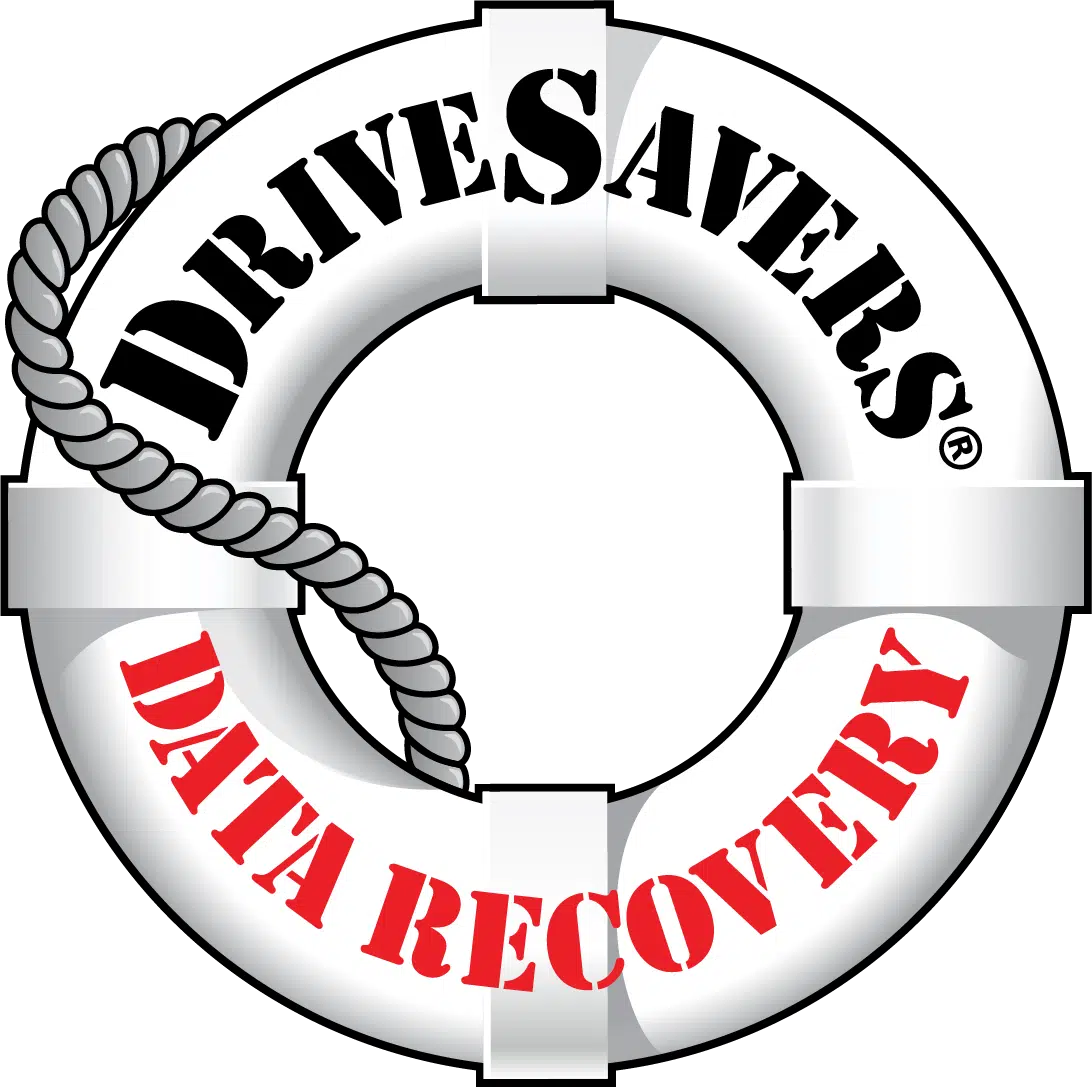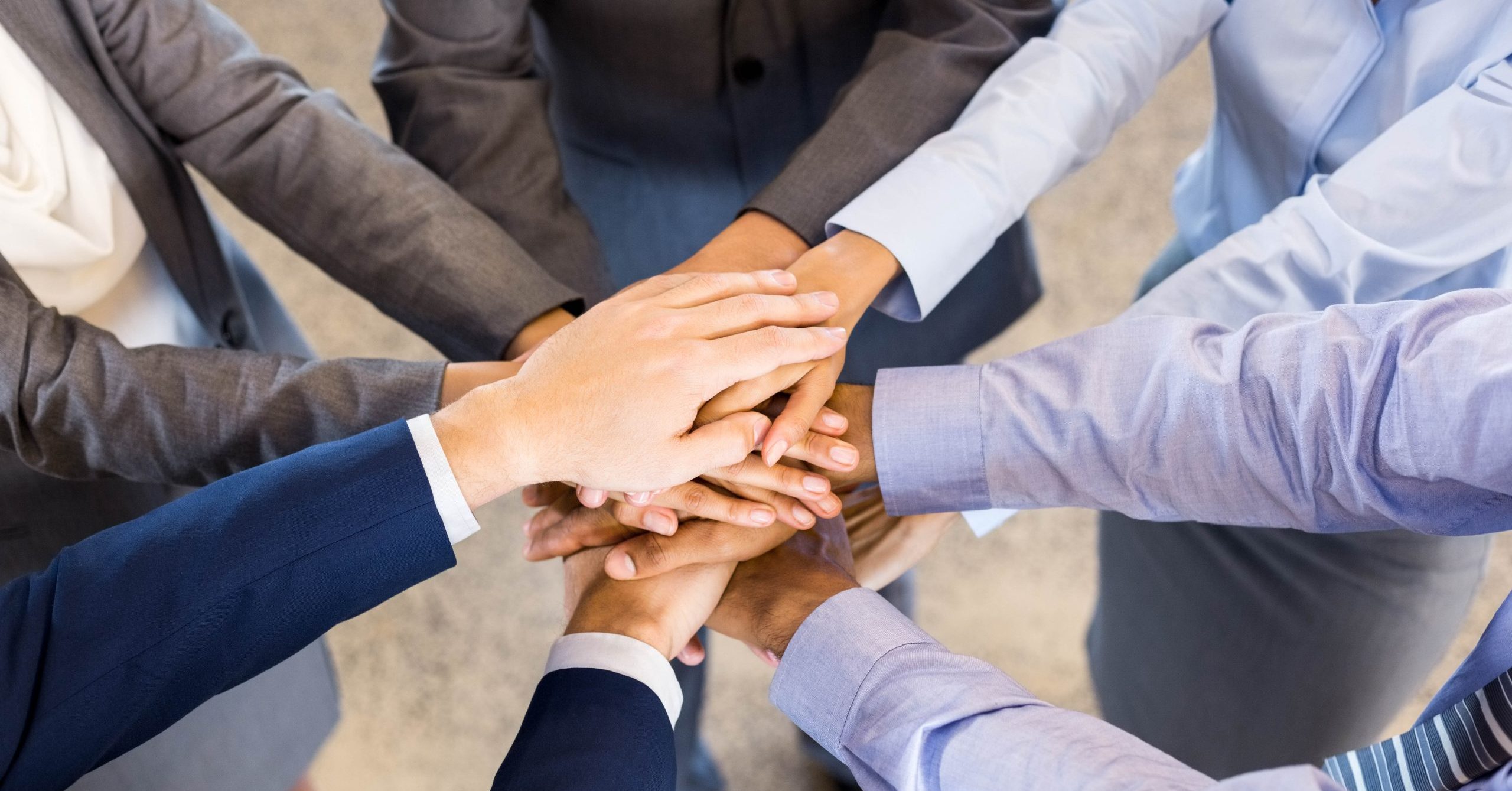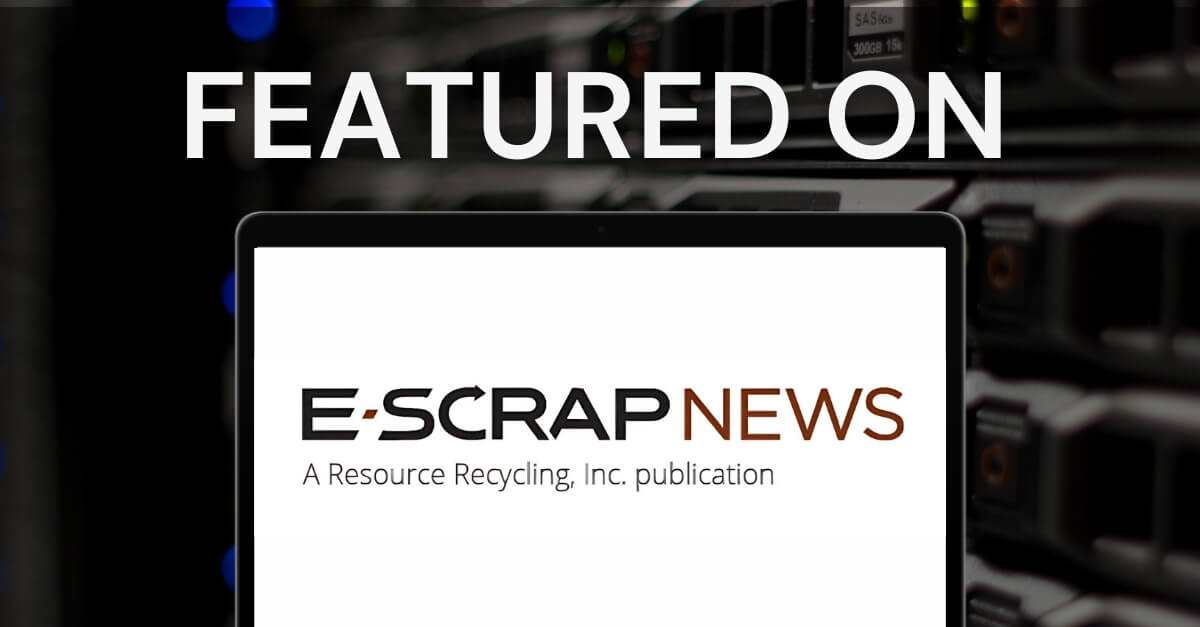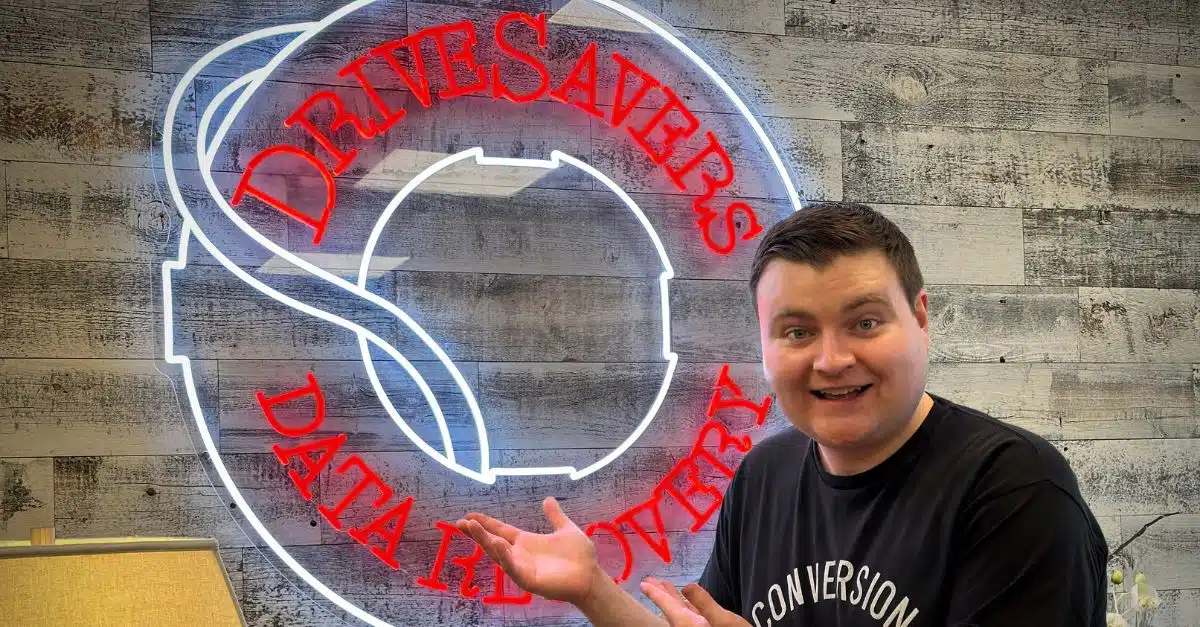Originally aired on 1150 AM KKNW Tech Talk with Craig.
Craig Walker, host of Tech Talk with Craig, interviewed a representative from DriveSavers on Saturday September 3rd from 12 p.m. to 1 p.m.
DriveSavers is a leader in data recovery and recently announced that it will provide free data recovery services to Texas residents who have lost data as a result of Hurricane Harvey in Houston, Austin, Corpus Christi and all other affected areas. The company is donating time, resources and years of expertise to retrieve data from water-damaged hard drives, smartphones, tablets, laptops and other data storage devices.
The free recovery service is available now for victims of Hurricane Harvey. Because exposure to water and air cause corrosion on electronic circuitry, customers must contact DriveSavers and ship their device no later than September 15, 2017. There is a limit of one device per business or household.
Those who require data recovery should call DriveSavers immediately at 800.440.1904 or visit here. In-house advisors are available 24 hours a day, seven days a week.
Each week be sure to call in and join the conversation as your host and his guests focus on different topics, ranging from internet security to gadgets, new technology to data backup/recovery, and then all points in between. The show will not be limited to computers as Craig covers hot news topics from all over the high-tech world. Included in the show is a segment called “Gadget Guy,” featuring Alan Wallace. Alan is a noted reviewer and columnist and has been a contributor for several publications worldwide. He is currently a senior contributor at aNewDomain.net and has been a judge for the Codie Awards for nearly a decade. Be sure to tune into Tech Talk with Craig every Saturday.
Transcript
Craig Walker: Also, we have somebody down in California with us. This is a great story and we’re going to talk to him in a minute. We have got Mike. Mike welcome to the show.
Mike Cobb: Well, thank you. Thanks for inviting me.
Craig Walker: Oh, my pleasure. Mike’s with a company called DriveSavers. DriveSavers is one of the largest data recovery operations. They do forensics they do drive recovery for your crashed hard drives. Remember one copy of any data is not important data. That is my tagline—zalways has been. But if you didn’t do that if you didn’t get a backup and you lost your hard drive these guys will help you out. But let me tell you who they’re actually helping out right now. I got a press release from these guys and I happen to be one of their resellers. It was cool to get a press release sent to me from, not from a reseller but it came over the wire to me. And they are going to do free data recovery for all of the victims of Harvey that have soaked cell phones and hard drives and they’re doing this gratis. And congratulations to you guys and your philanthropy overwhelms me with joy.
Mike Cobb: Well, thank you so much. Our guys are looking forward to helping out as many people as possible and just well we’ll talk a little bit more about that. But I’m very excited about that.
Craig Walker: But I’m very excited about that. Well really happy that you can make it on the show today. We’re going to take a short break. When we come back we’re going to talk to Mike about that. OK. You’re listening to the high tech radio network it’s Tech Talk with Craig right here on A.M. 11:50 KKNW.
Welcome back to the show. Tech Talk with Craig right here in the high tech radio network we’re high atop the World Headquarters of T-mobile overlooking the beautiful city of Seattle the Olympic Mountains and we can almost see Novato California from. Can you believe it?
I heard some giggling going on down there in Novato.
Mike Cobb: I don’t think I believe it.
Craig Walker: No, because you’re probably right. I actually can see it on my computer screen right now because I happen to be, well almost on the DriveSavers data recovery website. I’m actually on your Facebook page though. So tell us about who came up with this idea to do such a wonderful thing for the victims of Hurricane Harvey.
Mike Cobb: Well, I think like a lot of things it’s a collaboration over time which brings out some really great ideas. First off I’ve been at DriveSavers for over 23 years now and we’ve seen a lot of disasters over the years. Different hurricanes over the years and different other huge events that people know about. But you know in the last many years the smartphones have come out—the iPhone especially in 2007—and people started to have their lives with them. And over the last few major events—especially the flooding in Louisiana, for example, in St. Louis—we noticed that people have their pictures with them and their digital lives with them. And so we realized that you know this is becoming more and more important where we really have the possibility of helping people in a real way by getting back their digital memories. So a lot of the engineers have been there a lot of years like me and we’ve got together and said “what can we do?” and we said, “well this is what we’re good at. Let’s see how much we can help out.”
Craig Walker: Well, I’ll tell you it’s a wonderful, wonderful…it’s not…I can’t call it a gesture. It’s probably one of the kindest things that you’ve done. I know as a guy that’s got a lot of experience with data recovery, I know what goes into this. And I know you’ve got so much invested in cleanrooms and staff and we’re not talking about a couple of machines here. We’re talking about—this is an undertaking that really has meaning. It’s like you said people have their pictures their whole lives are on their phones or on their laptop. And with no backup. They don’t they don’t listen to the show obviously.
When when you lose everything physical to something like this having the ability to get your files and your pictures back is priceless. That’s great. What you guys are doing is awesome. We really appreciate it here in Seattle and I’m sure all across the country, especially to those in Louisiana—southwestern Louisiana—and southeastern Texas. Hey, tell us a little bit more about DriveSavers and what you guys do I know you’re more than just data recovery—you’re eDiscovery and digital forensics. Tell us a little bit about the company.
Mike Cobb: Yeah. You know there’s a lot of facets to the company. And really it’s it’s a matter of, first off of the data recovery side. If somebody has something that’s important to them and they’ve unfortunately had bad luck on top of bad luck where maybe they did have a second copy but both copies were damaged. And for something example like a flood then you know we want to be there for everybody. So our cleanroom and our technicians are there to do have the best chance to get back the data. So we really optimize the chances to get data back for the customer. As far as the eDiscovery, yes we work with all facets of the law enforcement etc. to help with cases. You know, for example, there was a case a few years ago in Texas where they were unable to be able to get access to an iPhone—took almost nine months with certainly three letter agencies trying to help out. They called Apple and Apple said get DriveSavers to try and we got it back within two days and help with that capital murder case. So you know our cleanroom and our longevity with the engineers the persistence where we really only focus on getting information or getting digital data back from devices has really kind of hyper focused us on that realm to be able to give the customers the best chance for recovery.
Craig Walker: I happen to be a reseller for DriveSavers and it was kind of a coincidence that I got that press release through the wire for somebody a company that I already know and deal with. I want to mention to everybody out there that I do a limited amount of data recovery but I don’t have a cleanroom. And I mentioned that to a customer of mine our customers many times and this is the biggest question that I get from my customers. I let them know I’m so sorry this drive is damaged or their heads are damaged to the point where I can’t get the data using software or software recovery. I have to send it to Cleanroom to get it taken care of. If you could explain to our listeners what a cleanroom is and why we need it. That would be a big plus for us because, man it is definitely something that’s on the minds. What heck is a cleanroom?
Mike Cobb: Why need the cleanroom? That’s a great question. So again we want to maximize the chance of recovery. Every recovery that comes to us we take incredibly seriously. That obviously is someone’s data that they want back so we don’t want to risk any more further or any further damage of a device because it’s in our care. So the cleanroom is used ,in our case, for hard drives because when we open up a hard drive to gain access to those heads that are damaged or whatever else is damaged inside the hard drive, we’re going to possibly introduce large particles or even hair follicles. You know you name that type of dust particles that can get in there. If those get under the heads, those can to actually create more damage. And so the cleanroom is to make sure we get away with those particles and actually push them away so that when we were doing our art of doing recovery from the heads we don’t introduce that damage. So it’s really that simple.
Craig Walker: Yeah. You know when you’re talking about a platter that’s got data on it—it’s so smooth and I’ve got I’ve actually got one from an old IBM machine from the 1950s and they made a clock out of it. But I can still see how smooth it has to be where that data is stored and I can see where a speck of dust, like you mentioned a hair follicle, not a hair but a hair follicle, can damage so much data. And depending on where it’s at because data is stored in so many different places on the drive, you might have a file—and correct me if I’m wrong, Mike, but you might have a file that’s on a hard drive that’s actually located in five, six, seven or just multiple places on that drive.
Mike Cobb: Yeah. And actually, it’s it’s not only that, it depends on the size of the file. And again when we talk about the photos the digital memories for our customers. You have the photos, which if they have a high resolution that’s going to be a larger file. You have a bigger chance that it’s going to be on more parts of the disk. If you have a video or your favorite video of a wedding or of whatever event you just went to that’s going to be a much larger file which has a much bigger chance of being on many parts of the disks. So being able to trace the files properly and miss the damage is the real tricky part.
Craig Walker: Very cool. You know we’re talking about eDiscovery and digital forensics earlier as one of your as one of your services that you do and you do a lot of this for the government for, as you mentioned, the three symbol organizations—FBI, CIA, et cetera. Do they not have the facilities to do that themselves? Is that something that you feature a lot for some of these things?
Mike Cobb: Yeah, that’s a great question. So yeah—many many people do data recovery or do have these type of facilities. The massive difference is the volume of jobs that come through. We see and we’ve had thousands upon thousands upon thousands of iPhone recovery requests over the years since 2007. Nobody can match the number or the types of calls that come in. And so when there’s something that’s new—a new failure, for example—we don’t just see one failure we see hundreds of failures. And so when you look at the other agencies they might have one or two cases that come in with those failures and they won’t have the again the micro focus to really come up with solutions and to know what’s really going on here. So again that’s actually an advantage to have a tremendous number of jobs come in because we see a vast number of different types of problems come in. So we have to challenge ourselves constantly to innovate all the time.
Craig Walker: I have many different companies that I do computer repair for and I have had to go out in the past and actually have my fingerprints taken and sign affidavits that the data that I see happen to see will stay with me and non-disclosures and things like that. First thing I tell them when I have to go like to a securities exchange—I can mention one, First Allied for instance, I went and had to get fingerprinted in order to work on their computers because there’s confidential customer data on their drives. And the first thing I said to him I said, first of all, I’m not interested in anybody else’s data. Second thing, I really don’t have any time. So but they didn’t waive that fingerprint thing. Is that something you guys have to do with nondisclosure and things like that when it comes to working with companies and recovering their data?
Mike Cobb: Oh yeah. We have multiple levels depending on the agency we’re working with or the type or entity that we’re working with. Even with iPhones—if there’s a case where an iPhone or another smart devices in question, we will need to get a signed document saying that’s their possession because sometimes you do find yourself in the middle of a dispute with different lawyers. And so it depends on who is actually in possession of that device or who should be in possession of that device. So there’s many different levels of security issues in that sense.
Craig Walker: Well, it’s really interesting. We could talk for a long time about data recovery and making sure people are backed up and you know it’s so important. But it just so happens that you might have a backup drive that, in this case we had a flood—a huge flood—and there’s probably literally hundreds of thousands of people who have damaged cell phones and damaged hard drives and we’ve got a company out there like DriveSavers Data Recovery out in Novato California. One of the largest and most reputable, by the way. They’ve got five stars on reviews for everywhere and that’s tough to do in this business. And they’re the only ones that I would do reselling for. And they’ve been doing this since 1985, so it’s not like they’re new to this. It’s a great company. You guys are doing a great service and in the in Judaism, we call it a mitzvah. You’re doing a big mitzvah to be able to help these victims of Hurricane Harvey. Really appreciate it. I want everybody out there to go out to see their website. It’s DriveSavers.com, I believe. And then you can go check them out at their DriveSavers—they have got a great Facebook page. If you’ve got a hard drive and you’re not involved in the flood and you need some data recovery done on it you’ve taken it and you can’t get it via software—you can send it over to me and I can check it out and I can guarantee if it does have to go to cleanroom it will be in good hands if you send it off to DriveSavers Data Recovery, if I send it off there.
So Michael, how does someone who’s been a victim of the flood take advantage of your free offer?
Mike Cobb: Yes, that’s that’s a great question and it’s so easy just call our 800 number. 800.440.1904. We have staff that are ready for your call 24/7. And so you always get a human being when you call in and they’ll walk you through the process.
Craig Walker: Very good. Give that number one more time.
Mike Cobb: 800.440.1904.
Craig Walker: I’m going to blast this show—the archive of this show—to Texas to all my social media contacts down there and maybe we can help get the word out. And it’s just a wonderful thing that you guys are doing. We really really appreciate it.
Mike Cobb: All right. Thank you so much.
Read more:
Listen to the full show: https://soundcloud.com/hightechradio/tech-talk-09-02-17





